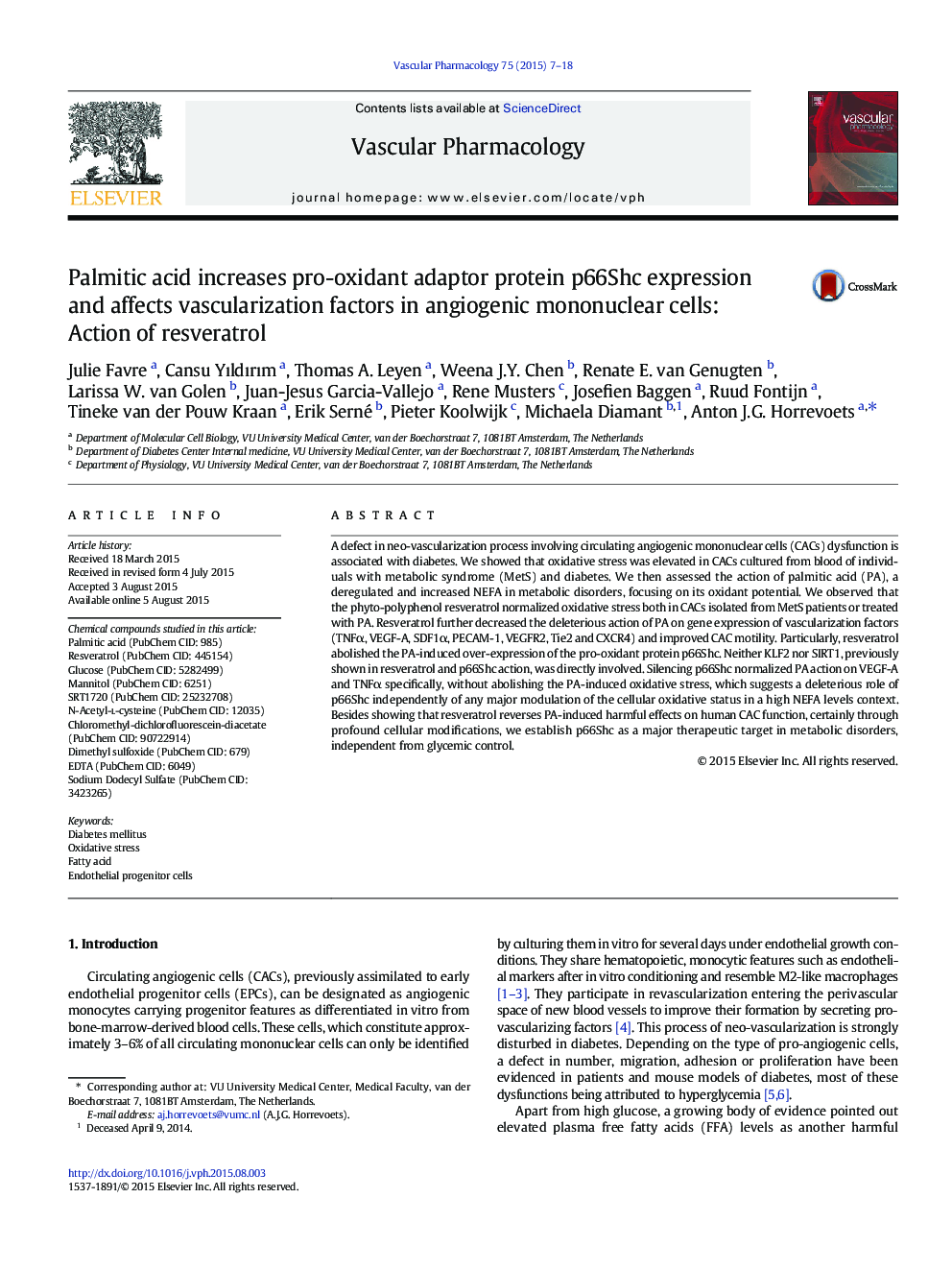| Article ID | Journal | Published Year | Pages | File Type |
|---|---|---|---|---|
| 2574014 | Vascular Pharmacology | 2015 | 12 Pages |
A defect in neo-vascularization process involving circulating angiogenic mononuclear cells (CACs) dysfunction is associated with diabetes. We showed that oxidative stress was elevated in CACs cultured from blood of individuals with metabolic syndrome (MetS) and diabetes. We then assessed the action of palmitic acid (PA), a deregulated and increased NEFA in metabolic disorders, focusing on its oxidant potential. We observed that the phyto-polyphenol resveratrol normalized oxidative stress both in CACs isolated from MetS patients or treated with PA. Resveratrol further decreased the deleterious action of PA on gene expression of vascularization factors (TNFα, VEGF-A, SDF1α, PECAM-1, VEGFR2, Tie2 and CXCR4) and improved CAC motility. Particularly, resveratrol abolished the PA-induced over-expression of the pro-oxidant protein p66Shc. Neither KLF2 nor SIRT1, previously shown in resveratrol and p66Shc action, was directly involved. Silencing p66Shc normalized PA action on VEGF-A and TNFα specifically, without abolishing the PA-induced oxidative stress, which suggests a deleterious role of p66Shc independently of any major modulation of the cellular oxidative status in a high NEFA levels context. Besides showing that resveratrol reverses PA-induced harmful effects on human CAC function, certainly through profound cellular modifications, we establish p66Shc as a major therapeutic target in metabolic disorders, independent from glycemic control.
Graphical abstractFigure optionsDownload full-size imageDownload high-quality image (117 K)Download as PowerPoint slide
